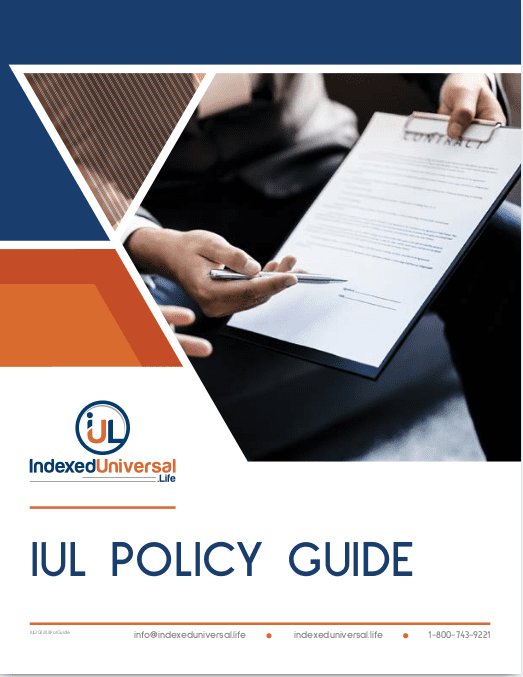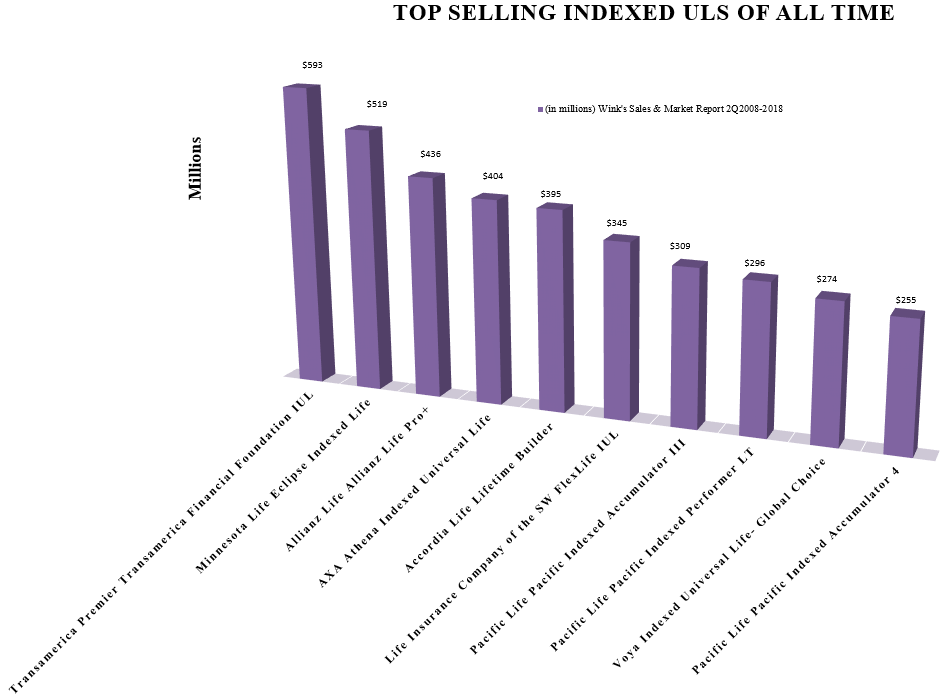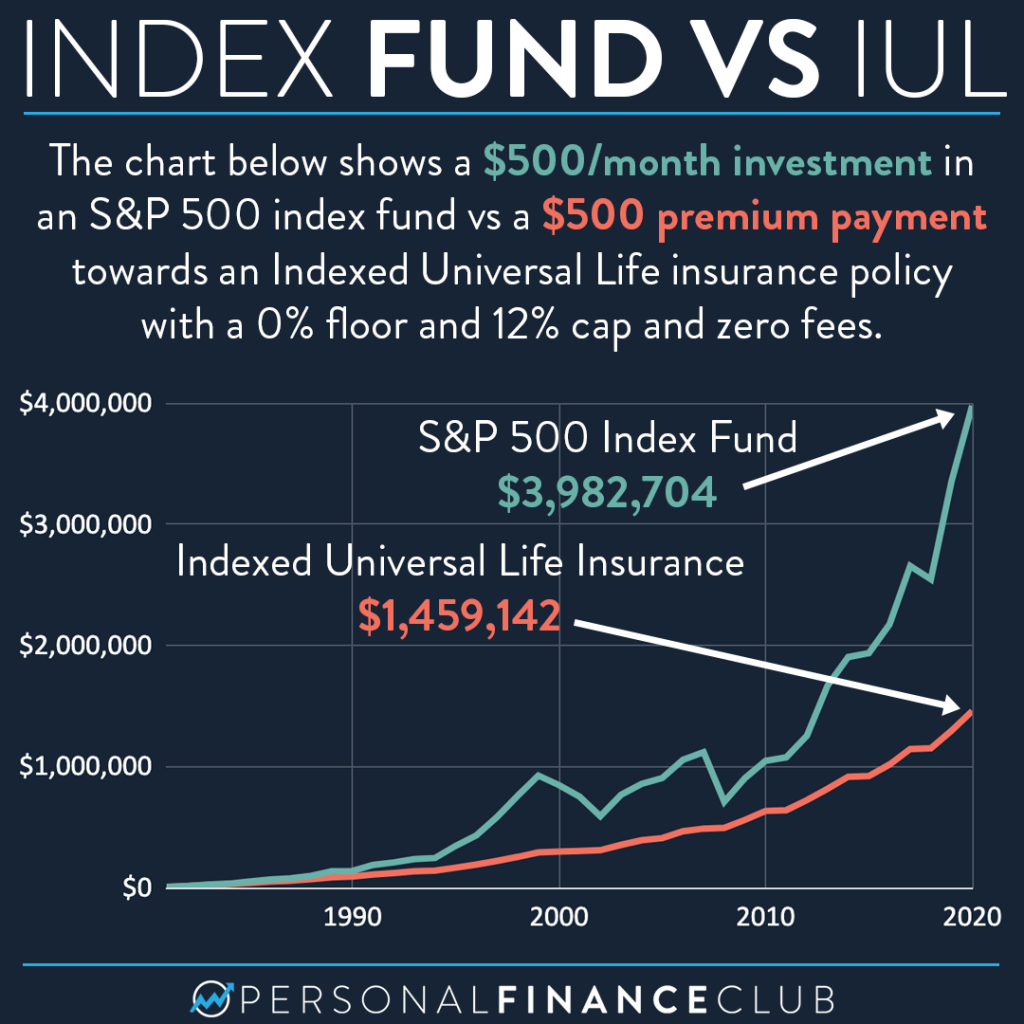All Categories
Featured
Table of Contents
Do they contrast the IUL to something like the Lead Total Amount Supply Market Fund Admiral Shares with no tons, a cost ratio (ER) of 5 basis factors, a turn over proportion of 4.3%, and a phenomenal tax-efficient document of circulations? No, they compare it to some dreadful actively managed fund with an 8% load, a 2% ER, an 80% turn over ratio, and a dreadful document of short-term funding gain circulations.
Shared funds frequently make annual taxable distributions to fund owners, even when the value of their fund has dropped in value. Mutual funds not only need earnings reporting (and the resulting annual taxes) when the mutual fund is rising in value, yet can also impose earnings taxes in a year when the fund has decreased in value.
You can tax-manage the fund, collecting losses and gains in order to reduce taxable circulations to the financiers, however that isn't somehow going to change the reported return of the fund. The possession of mutual funds may call for the shared fund owner to pay estimated tax obligations (index universal life insurance companies).

IULs are very easy to place to ensure that, at the owner's death, the recipient is exempt to either revenue or estate tax obligations. The exact same tax obligation reduction strategies do not work nearly as well with shared funds. There are countless, often expensive, tax obligation traps related to the timed trading of mutual fund shares, traps that do not relate to indexed life insurance policy.
Possibilities aren't really high that you're mosting likely to be subject to the AMT due to your mutual fund circulations if you aren't without them. The rest of this one is half-truths at best. While it is true that there is no income tax due to your successors when they inherit the profits of your IUL policy, it is also real that there is no earnings tax due to your heirs when they acquire a mutual fund in a taxed account from you.
Universal Life Cash Surrender Value
There are much better methods to prevent estate tax problems than purchasing financial investments with reduced returns. Shared funds may cause earnings taxation of Social Protection advantages.

The development within the IUL is tax-deferred and might be taken as free of tax earnings by means of finances. The plan owner (vs. the mutual fund supervisor) is in control of his or her reportable income, hence allowing them to reduce or even remove the taxation of their Social Security advantages. This one is fantastic.
Below's an additional minimal concern. It's real if you buy a shared fund for state $10 per share prior to the circulation day, and it distributes a $0.50 circulation, you are after that going to owe taxes (most likely 7-10 cents per share) in spite of the fact that you haven't yet had any type of gains.
But ultimately, it's actually concerning the after-tax return, not just how much you pay in taxes. You are going to pay more in taxes by utilizing a taxable account than if you get life insurance coverage. However you're also probably going to have even more money after paying those taxes. The record-keeping needs for possessing shared funds are substantially more complicated.
With an IUL, one's documents are maintained by the insurance policy company, duplicates of annual declarations are sent by mail to the owner, and distributions (if any type of) are totaled and reported at year end. This is likewise kind of silly. Certainly you should keep your tax documents in instance of an audit.
Why Indexed Universal Life Insurance Might Be New 401k
All you need to do is shove the paper into your tax folder when it turns up in the mail. Barely a factor to purchase life insurance. It resembles this person has actually never ever purchased a taxable account or something. Common funds are generally part of a decedent's probated estate.
In enhancement, they are subject to the hold-ups and costs of probate. The proceeds of the IUL plan, on the various other hand, is always a non-probate distribution that passes outside of probate directly to one's named beneficiaries, and is as a result exempt to one's posthumous lenders, undesirable public disclosure, or similar hold-ups and costs.
Medicaid disqualification and life time income. An IUL can offer their proprietors with a stream of revenue for their entire life time, no matter of how lengthy they live.

This is helpful when arranging one's events, and converting properties to revenue before a nursing home arrest. Shared funds can not be transformed in a comparable way, and are often considered countable Medicaid assets. This is an additional dumb one promoting that inadequate individuals (you recognize, the ones that need Medicaid, a federal government program for the inadequate, to pay for their nursing home) must utilize IUL rather than common funds.
Maximum Funded Insurance
And life insurance policy looks terrible when compared fairly versus a retirement account. Second, individuals who have money to buy IUL over and past their retirement accounts are going to have to be awful at handling cash in order to ever before qualify for Medicaid to spend for their retirement home costs.
Persistent and terminal illness rider. All policies will allow an owner's easy accessibility to money from their plan, often waiving any abandonment charges when such people experience a significant health problem, require at-home treatment, or come to be constrained to an assisted living home. Shared funds do not supply a similar waiver when contingent deferred sales costs still relate to a common fund account whose owner requires to sell some shares to money the costs of such a keep.
Universal Life Online
You obtain to pay even more for that benefit (motorcyclist) with an insurance plan. What a lot! Indexed universal life insurance coverage provides death advantages to the recipients of the IUL owners, and neither the proprietor nor the recipient can ever before lose money as a result of a down market. Mutual funds supply no such guarantees or death benefits of any kind of kind.
Now, ask yourself, do you actually need or desire a survivor benefit? I certainly don't need one after I reach economic independence. Do I desire one? I expect if it were inexpensive sufficient. Naturally, it isn't cheap. Typically, a buyer of life insurance policy pays for the true price of the life insurance coverage benefit, plus the expenses of the plan, plus the profits of the insurance provider.
Universal Life Insurance Ratings
I'm not entirely certain why Mr. Morais threw in the entire "you can't shed cash" again right here as it was covered rather well in # 1. He simply wished to duplicate the very best selling point for these points I expect. Once again, you don't shed nominal dollars, however you can shed genuine bucks, in addition to face major opportunity expense because of low returns.

An indexed universal life insurance coverage plan owner may trade their plan for a completely various plan without setting off revenue taxes. A shared fund proprietor can not relocate funds from one shared fund company to an additional without selling his shares at the previous (therefore triggering a taxable event), and redeeming new shares at the last, often subject to sales fees at both.
While it is real that you can trade one insurance plan for one more, the reason that people do this is that the very first one is such an awful plan that even after getting a new one and going through the very early, unfavorable return years, you'll still come out ahead. If they were offered the best policy the very first time, they shouldn't have any kind of wish to ever trade it and undergo the very early, unfavorable return years once more.
Latest Posts
Adjustable Life Insurance Vs Universal Life Insurance
Iu L
Universal Retirement Protection